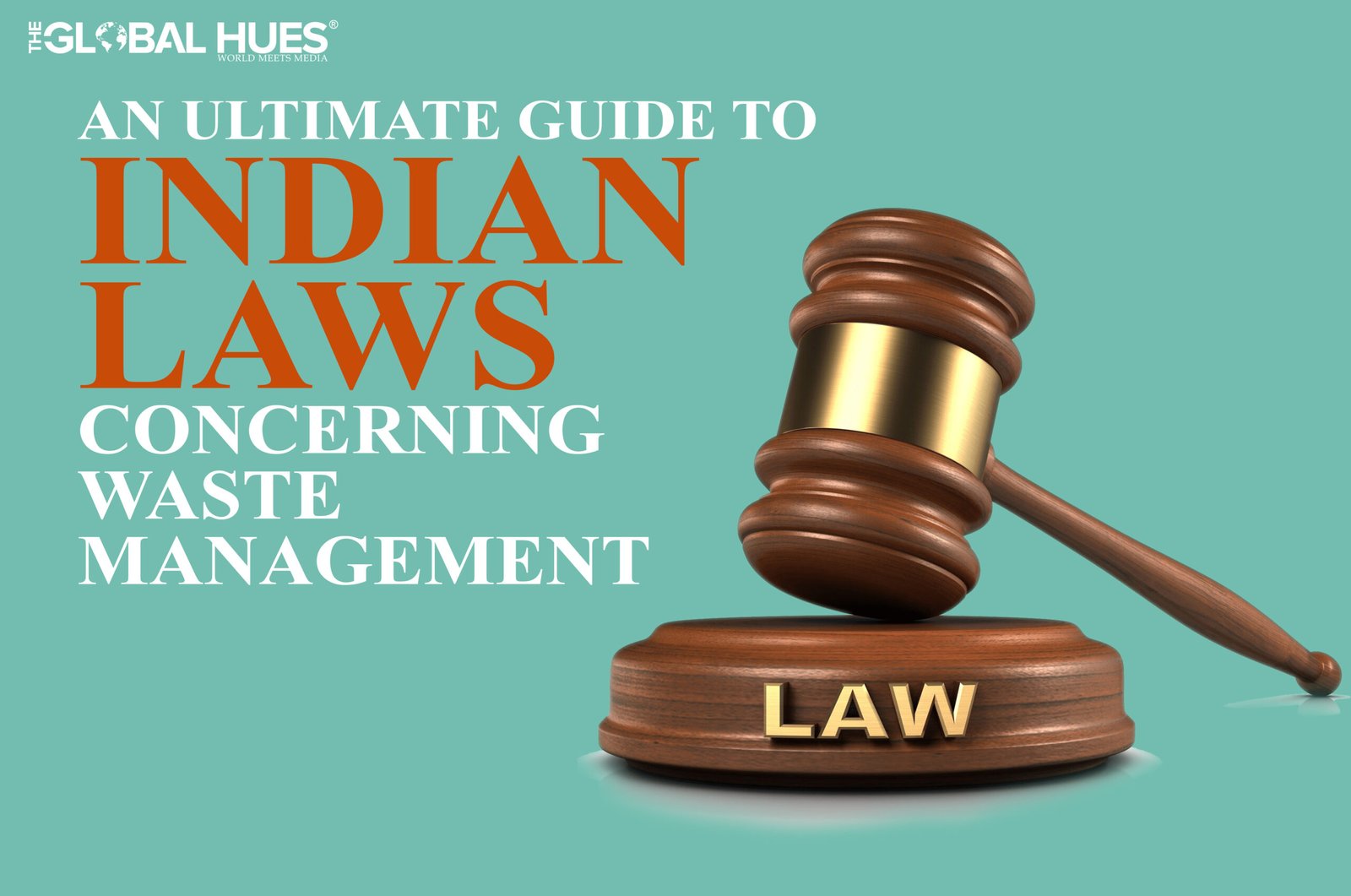Presently, India generates over 62 million tons of waste every year, of which less than 60% collected and around 15% processed. Rapid and widespread industrial development, regular flow of persons from rural to urban areas, and inadequate action of the authorities entrusted with the work of pollution control and environmental protection have contributed to an unhealthy environment which requires waste management system.
If the disposal of wastes is still not regulated properly, it can really lead to serious environmental issues. There is a need for a robust waste management system. In India, waste management is governed by the Ministry of Environment, Forest, and Climate Change. Both these institutions work together with the State Pollution Control Board in various States. Here are some Indian laws concerning waste management and regulation:

The Environmental Protection Act
Enacted in the year 1986, The Environmental Protection Act aims to set up a proper protection system. It confers powers to the Central Government to regulate all forms of waste. This act has multiple sections. Section 7 places a principle prohibition on harming the environment by stating that no person carrying any activity should emit pollutants in excess of the set standards. Section 9 of the Act states that if any event takes place that harms the environment due to any foreseen incident, the person responsible for it is duty-bound to prevent the pollutant. There are many other sections in which, the government has the authority to give specific directions, without making any changes in the Act.
Bio-Medical Waste (Management and Handling) Rules, 1998
Bio-medical waste is any waste or byproduct that is generated during treatment, immunization, and the treatment of humans or animals or in research activities. The purpose of these rules is to ensure, bio-medical waste is disposed off safely. Schedule I of the Rule divides biological waste into different categories such as biotechnological, microbiological, animal anatomical, discarded medicines, etc.
The Bio-Medical Waste rules are applicable to nursing homes, blood banks, dispensaries, pathological laboratories, veterinary homes, etc. The rule prohibits mixing biological waste with any other types of waste and bio-medical wastes cannot be stored beyond the period of 48 hours without being treated.
The Hazardous Wastes (Management, Handling, and Transboundary Movement) Rules, 2008
Management of hazardous waste is a serious concern. The Rules places an obligation on the occupier of hazardous to safe and proper maintaining of environmental waste. Here, the occupier is the individual who has a plant or factory which produces hazardous waste. The occupier needs to sell or send those wastes to an authorized recycler or reprocessor by the government to dispose off the waste safely. People involved in storage, package, destruction, collection, processing, etc, need to take authorization from the State Pollution Board.
The rule states that the sale or transfer of hazardous waste is possible only after taking a valid registration from Central Pollution Control Board. The use of waste as a source of energy also needs registration from the board.
The Plastic Waste (Management & Handling) Rules, 2011
Focused on the use, manufacturing, and recycling of plastic waste, The Plastic Waste Rules was implemented in 2011 and has uniform applicability towards all distributors, users, retailers, and manufacturers of plastic products. Plastic waste can be any plastic product that has been discarded after its use at the end of the product’s life.
The rules have made it compulsory for manufacturers of plastic products and recyclers to be registered under the State Pollution Control Board. It also states that no retailer can provide plastic bags free of cost to make sure that people use plastic bags judicially.
The E-Waste (Management and Handling) Rules, 2011
Today, India is becoming a hub for the IT sector with the growing economy and technological advancement. But it is also creating a lot of e-wastes, disposal of which is necessary. A lot of e-waste also gets imported into India illegally that worsens the case. The E-Waste regulates the issues related to recycling and disposal of e-waste by managing e-waste in an environment-friendly way.
These Rules apply to manufacturers and consumers. E-waste is defined as any electronic or electrical equipment that has been rejected and discarded after use. Electronic producers must take permission from the State Pollution Control Board under the rule.
These Indian laws have established a foundation for balancing the development and environmental sustainability in the country. We as a society also need to support these initiatives and take steps towards environmental protection and waste management.
Also Read:
- 20 Waste Management And Housekeeping Companies Ensuring A Healthful Environment
- Waste Management Workers – A Blessing In Disguise
- 5 Budget-Friendly Eco Swaps For Healthy Earth
- Types Of Waste, Sources And Their Solutions
- Health And Hygiene- To Triumph Over Covid-19
- 10 Housekeeping Secrets Shared By The Older Bunch Of The House




